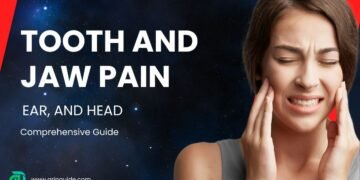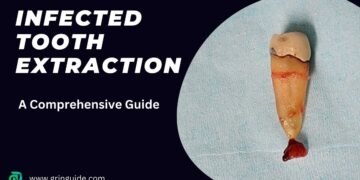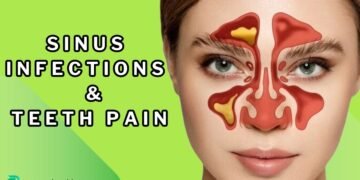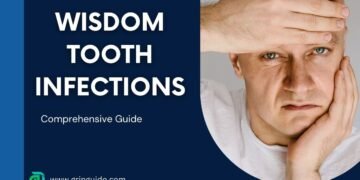Table of Contents
Introduction to Wisdom Teeth
Wisdom teeth, also known as third molars, are the last set of teeth to emerge in the mouth. Typically, they appear between the ages of 17 and 25, although the exact timing can vary from person to person. These teeth are located at the very back of the mouth, one in each corner, making a total of four wisdom teeth.
Despite being a natural part of dental development, wisdom teeth are often associated with various complications that can lead to pain and discomfort.
The primary issue with wisdom teeth is the lack of sufficient space in the jaw to accommodate them properly. This can result in wisdom teeth becoming impacted, meaning they are unable to fully emerge or align correctly.
Impacted wisdom teeth can cause significant pain, swelling, and even infection. Other common problems include partial eruption, where the tooth breaks through the gum but does not fully emerge, creating a flap of gum tissue that can trap food and bacteria, leading to further complications.
Understanding the reasons behind wisdom tooth pain is crucial for effective management. For many, the pain can become unbearable, especially if left untreated. Recognizing the signs early and seeking appropriate care can prevent the escalation of discomfort.
Wisdom tooth pain can be particularly challenging for pregnant women, as their options for medical intervention are often limited due to the potential risks to the fetus.
Addressing wisdom tooth pain promptly is essential to maintain oral health and overall well-being. Knowledge of home remedies can provide temporary relief, but professional evaluation and treatment are often necessary to resolve the underlying issues.
By being informed about the nature of wisdom teeth and the common problems they present, individuals can take proactive steps to manage and prevent unbearable wisdom tooth pain effectively.
Symptoms of Unbearable Wisdom Tooth Pain
Experiencing wisdom tooth pain can be distressing, particularly when the pain becomes unbearable. Recognizing the symptoms of severe wisdom tooth issues is crucial for seeking timely medical intervention. One of the primary indicators of unbearable wisdom tooth pain is intense, persistent pain that does not subside with over-the-counter pain medications. This discomfort can radiate to the jaw, ear, and surrounding teeth, often disrupting daily activities and sleep.
Swelling around the affected area is another common symptom. This swelling can extend to the cheeks and jaw, causing visible facial distortion. In some cases, the swelling may be accompanied by redness and tenderness, indicating a possible infection. Fever is a significant symptom to watch for, as it often signals that the body is fighting an infection, which requires prompt medical attention.
Difficulty swallowing or breathing is a severe symptom associated with unbearable wisdom tooth pain. This occurs when the swelling and inflammation obstruct the throat or airway, posing a risk to one’s health. If you experience these symptoms, it is imperative to seek immediate medical assistance to prevent further complications.
Additionally, pus or a foul taste in the mouth can indicate an abscess, a serious infection requiring urgent dental care. The presence of a bad taste or odor often suggests that the infection has spread, necessitating prompt treatment to avoid more severe health issues.
Recognizing these symptoms and understanding their implications is essential for managing unbearable wisdom tooth pain effectively. Whether dealing with wisdom tooth pain or unbearable wisdom tooth pain while pregnant, prompt medical consultation is critical to ensure appropriate treatment and relief. Home remedies may provide temporary relief, but they are not substitutes for professional dental care, especially when severe symptoms are present.
Common Causes of Wisdom Tooth Pain
Wisdom tooth pain can be an overwhelming experience, often described as unbearable. This discomfort generally stems from several common causes, including impaction, pericoronitis, and decay. Understanding these conditions can shed light on the origin of the pain and the necessity for professional intervention.
- Impaction occurs when a wisdom tooth fails to emerge properly through the gum line. This can happen due to insufficient space in the jaw or improper alignment. Impacted wisdom teeth may remain completely hidden beneath the gums or partially emerge, leading to significant discomfort. Symptoms often include swelling, pain radiating to adjacent teeth, and difficulty in opening the mouth fully. In extreme cases, it may cause unbearable wisdom tooth pain while pregnant, complicating the situation further.
- Pericoronitis, another common cause of wisdom tooth pain, is an inflammation of the gum tissue surrounding a partially erupted tooth. This condition typically arises when food particles and bacteria accumulate under the gum flap covering the emerging tooth. Symptoms of pericoronitis include redness, swelling, foul taste, and severe pain. If untreated, the infection can spread, leading to considerable discomfort and potential complications.
- Tooth decay is a prevalent issue that can affect wisdom teeth, primarily due to their location at the back of the mouth, which makes them harder to clean. Plaque buildup can lead to cavities, causing sharp, throbbing pain. Decay in wisdom teeth can be particularly troublesome, often resulting in unbearable wisdom tooth pain that necessitates prompt dental attention.
In conclusion, while wisdom tooth pain can be attributed to various causes, including impaction, pericoronitis, and decay, it is crucial to seek a professional diagnosis and treatment. Addressing these issues promptly can prevent further complications and alleviate the suffering associated with wisdom tooth pain.
Wisdom tooth pain unbearable home remedy
When dealing with wisdom tooth pain, finding immediate relief is often a priority, especially when the pain becomes unbearable. While it is crucial to seek professional dental advice for a long-term solution, several home remedies can offer temporary relief and help manage the discomfort.
1. Saltwater Rinse
One of the most effective methods is a saltwater rinse. By mixing a teaspoon of salt into a cup of warm water and swishing the solution around the mouth for about 30 seconds, you can reduce bacteria and soothe inflammation. This simple remedy can provide significant relief from wisdom tooth pain, particularly if performed multiple times a day.
2. ice packs
Another practical approach involves the application of ice packs. Placing an ice pack on the affected side of the face helps to alleviate swelling and numb the area, thereby reducing pain. It is advisable to use the ice pack for 15-20 minutes at a time, ensuring that there is a cloth or towel between the skin and the ice pack to prevent frostbite.
3. Over-the-counter pain relievers
Over-the-counter pain relievers, such as ibuprofen or acetaminophen, can also be beneficial in managing unbearable wisdom tooth pain. These medications help reduce inflammation and provide pain relief. However, it is essential to follow the recommended dosages and consult a healthcare provider, especially for those who are pregnant or have other medical conditions.
For those experiencing unbearable wisdom tooth pain while pregnant, it is particularly important to consult a healthcare provider before using any home remedy or medication. Safety for both the mother and the developing fetus should always be the primary concern.
These home remedies can offer temporary relief from wisdom tooth pain, making the discomfort more manageable. However, they are not substitutes for professional dental treatment. Persistent or severe pain should be evaluated by a dentist to determine the appropriate course of action and to prevent further complications.
When to See a Dentist
Experiencing wisdom tooth pain can range from mildly uncomfortable to completely unbearable. It is crucial to recognize when professional dental attention is necessary to prevent further complications. Unbearable wisdom tooth pain, especially if it disrupts your daily activities, warrants an immediate visit to the dentist.
- Pregnancy: This is particularly important for individuals who are pregnant, as untreated dental issues can pose risks to both mother and child. Additionally, if you notice signs of infection such as swelling, redness, or pus around the affected area, it is imperative to seek dental care promptly. Infections can spread quickly and may lead to more severe health issues if left untreated.
- Difficulty in mouth movement, such as trouble opening your mouth fully or experiencing pain while chewing, is another indicator that you should see a dentist. These symptoms might suggest that your wisdom teeth are impacted, meaning they are not emerging properly from the gums. Impacted wisdom teeth can lead to various complications if not addressed in a timely manner. Delaying treatment can result in infections, damage to adjacent teeth, and the formation of cysts, which can cause more extensive damage to the jawbone and surrounding structures.
Ignoring wisdom tooth pain, even if it seems manageable at first, can lead to significant health risks over time. For instance, an untreated impacted wisdom tooth can create an environment conducive to bacterial growth, leading to recurrent infections. These infections can eventually affect other parts of your body, including your heart. Additionally, impacted wisdom teeth can exert pressure on adjacent teeth, causing misalignment or even damage. In some cases, cysts or tumors can form around the impacted tooth, necessitating more extensive surgical interventions.
Therefore, it is essential to monitor your symptoms and seek professional dental care if you experience any signs of severe discomfort, infection, or difficulty in mouth movement. Proactive management of wisdom tooth issues can help mitigate potential risks and ensure your long-term oral health.
Professional Treatments for Wisdom Tooth Pain
When wisdom tooth pain becomes unbearable, seeking professional dental care is essential to ensure effective treatment and prevent complications. Dentists have several in-office procedures at their disposal to manage and alleviate this discomfort.
Routine dental cleanings and fillings can be vital in reducing pain caused by cavities or gum infections around the wisdom teeth. These treatments help in maintaining oral hygiene and preventing the escalation of pain and discomfort.
Impacted Wisdom Teeth surgery
In cases where wisdom tooth pain becomes unbearable and is not resolved through basic dental care, more advanced interventions may be necessary. One common professional treatment is the surgical extraction of the wisdom teeth. This procedure is often recommended when the teeth are impacted, meaning they are trapped beneath the gum line and cannot erupt properly. Impacted wisdom teeth can cause significant pain, infection, and damage to adjacent teeth, making extraction the most effective solution.
The surgical extraction procedure involves making an incision in the gum to access the tooth. The tooth may need to be divided into smaller pieces to facilitate removal. This procedure is typically performed under local anesthesia, ensuring that the patient experiences minimal discomfort during the process.
While the idea of surgery can be daunting, it is a routine procedure that dentists and oral surgeons are well-equipped to handle. The recovery period following extraction usually involves managing swelling and discomfort through prescribed pain medications and following post-operative care instructions from the dental professional.
Wisdom Tooth extraction
After undergoing wisdom tooth extraction, it is essential to understand what to expect during the recovery period to ensure a smooth and comfortable healing process. The initial phase of recovery typically involves some degree of pain and swelling, which can be effectively managed by adhering to the post-operative care instructions provided by your dental professional.
One of the primary recommendations is to rest and avoid strenuous activities for at least 24 to 48 hours post-surgery. This helps minimize the risk of complications and promotes faster healing. Applying an ice pack to the affected area in 15-minute intervals during the first 24 hours can significantly reduce swelling and discomfort. Over-the-counter pain medications, such as ibuprofen or acetaminophen, may also be used to alleviate pain. However, it is crucial to follow the dosage instructions and consult your dentist if the pain becomes unbearable.
Maintaining good oral hygiene is vital during the recovery period, yet it requires a careful approach to avoid disturbing the surgical site. Gently rinsing your mouth with warm salt water starting 24 hours after the procedure can help keep the area clean and reduce the risk of infection. Avoid using a toothbrush near the extraction site for the first few days, and refrain from spitting or using straws, as these actions can dislodge the blood clot and delay healing.
It is important to be aware of the signs of potential complications, such as prolonged bleeding, severe swelling, or an increase in pain after the initial few days. These symptoms may indicate an infection or other issues that require prompt attention from your dental professional. Additionally, if you experience unbearable wisdom tooth pain while pregnant, it is essential to seek medical advice to address the pain safely and effectively.
By following these guidelines and maintaining regular communication with your dentist, you can navigate the recovery process more comfortably and reduce the likelihood of complications. Remember, every individual’s healing journey is unique, so listening to your body and seeking professional advice when necessary is paramount to a successful recovery.
Wisdom Teeth management for pregnant
Addressing unbearable wisdom tooth pain while pregnant requires additional considerations to ensure the safety of both the mother and the developing baby. Pregnant women experiencing severe wisdom tooth pain should consult their dentist to explore safe treatment options. Professional dental care during pregnancy is crucial to avoid complications such as infections, which can have adverse effects on both maternal and fetal health.
In conclusion, professional treatments for wisdom tooth pain are diverse and tailored to the severity and nature of the condition. Regular dental visits and early intervention can prevent the pain from becoming unmanageable and ensure optimal oral health.
Prevention and Long-Term Management
Preventing wisdom tooth pain from becoming unbearable requires a proactive approach to dental care. One of the most effective strategies is regular dental check-ups. These routine visits allow dentists to monitor the development and positioning of wisdom teeth, identifying potential issues before they escalate into severe pain. Early detection is crucial, as it enables timely interventions that can mitigate complications such as impaction or infection.
Early intervention often involves the removal of wisdom teeth that are likely to cause problems. This preemptive measure can significantly reduce the risk of enduring unbearable wisdom tooth pain, especially during critical periods such as pregnancy, when dental procedures can be more complex. By addressing issues at an early stage, patients can avoid the severe discomfort and potential complications associated with problematic wisdom teeth.
Maintaining good oral hygiene is another cornerstone of preventing wisdom tooth pain. Regular brushing and flossing help eliminate food particles and bacteria that can contribute to infections around partially erupted wisdom teeth. Using an antiseptic mouthwash can further reduce the risk of infection and inflammation, keeping the gums and teeth healthy. Additionally, adopting a balanced diet that limits sugary and acidic foods can prevent decay and strengthen the overall oral health.
Proactive dental care is essential for long-term oral health. By adhering to regular dental appointments, practicing good oral hygiene, and addressing potential issues early, individuals can prevent wisdom tooth pain from becoming unbearable. This comprehensive approach ensures that wisdom teeth are managed effectively, contributing to overall well-being and quality of life.
Understanding Wisdom Tooth Pain
Wisdom tooth pain is a common dental issue that many individuals experience, often manifesting in various forms and degrees of severity. The pain associated with wisdom teeth can range from a mild discomfort to severe, debilitating pain that can interfere with daily activities. Typically emerging during late adolescence or early adulthood, wisdom teeth, or third molars, can cause pain as they attempt to erupt through the gums. This process is often complicated by a lack of space in the jaw, which can lead to impaction.
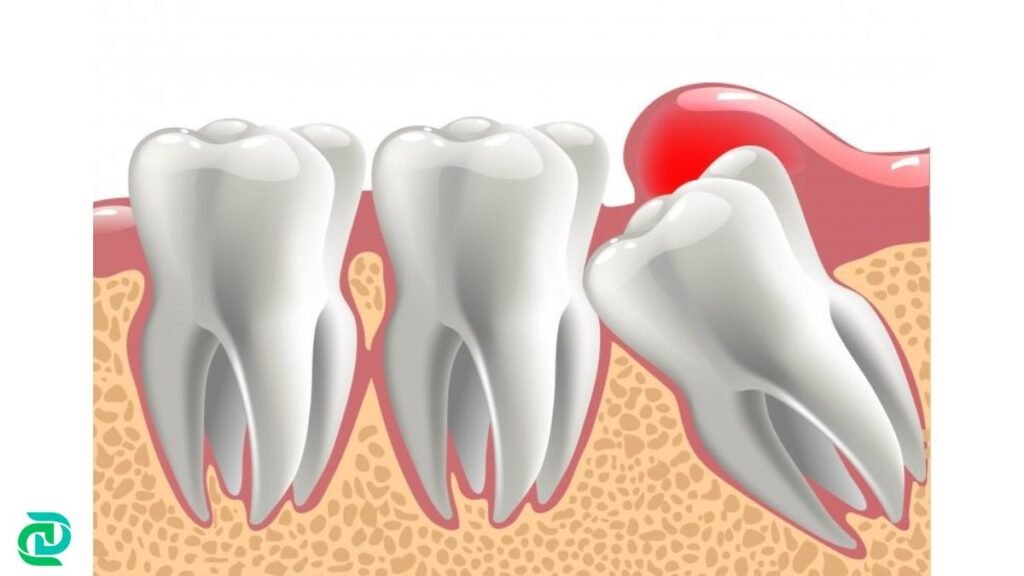
The nature of wisdom tooth pain can vary significantly. For some, it may be a dull, persistent ache in the back of the mouth. For others, the pain may be sharp and sudden, often exacerbated by chewing or opening the mouth wide. Swelling, tenderness, and redness around the affected area are also common symptoms. In more severe cases, the pain can radiate to other parts of the head, including the jaw, ear, and even the throat, making it unbearable for some individuals.
Identifying the source of the pain is crucial for appropriate treatment. While the discomfort might stem from the normal eruption of the wisdom tooth, it can also indicate more serious issues such as infection, cyst formation, or damage to adjacent teeth. Impacted wisdom teeth, which are teeth that do not fully emerge or are misaligned, can cause significant problems and necessitate intervention. Additionally, individuals who experience unbearable wisdom tooth pain while pregnant should seek immediate professional advice, as the condition can have implications for both maternal and fetal health.
Understanding the specific characteristics and causes of wisdom tooth pain is the first step toward effective management and treatment. Whether the pain is mild or severe, addressing it promptly can prevent further complications and ensure better oral health. For those experiencing wisdom tooth pain unbearable, seeking professional dental care is essential, alongside exploring wisdom tooth pain unbearable home remedies for temporary relief.
Conclusion
Addressing wisdom tooth pain promptly is of paramount importance. Neglecting unbearable wisdom tooth pain can lead to severe complications, including infection, damage to adjacent teeth, and potential cyst formation. These issues not only exacerbate the pain but also pose significant risks to overall oral health. Therefore, it is crucial to seek professional dental advice at the earliest sign of discomfort.
For those experiencing unbearable wisdom tooth pain while pregnant, the need for timely intervention becomes even more critical. Dental pain can add undue stress, which is neither beneficial for the mother nor the developing baby. Consulting a dentist who can recommend pregnancy-safe treatments ensures both maternal and fetal well-being.
Home remedies can provide temporary relief for wisdom tooth pain. However, they should not replace professional dental care. Remedies such as saltwater rinses, cold compresses, and over-the-counter pain medications might alleviate symptoms temporarily, but they do not address the underlying issues causing the pain. Relying solely on home remedies can delay necessary treatments and potentially worsen the condition.
Seeking professional advice and adhering to recommended treatment plans are essential for optimal oral health. Dentists can offer tailored solutions, including medication, minor surgical procedures, or other interventions, to effectively manage wisdom tooth pain. Following their guidance ensures that the pain is managed appropriately and any complications are promptly addressed.
Timely and effective management of wisdom tooth issues not only alleviates pain but also contributes to long-term oral health. By addressing problems early, patients can avoid more invasive procedures and ensure their overall dental well-being. Ultimately, proactive care and professional guidance lead to a healthier, pain-free life, underscoring the benefits of prompt attention to wisdom tooth pain.
Sources: NHS
FAQs
-
How can I stop unbearable wisdom teeth pain?
You can use these home remedies: Saltwater Rinse, ice packs, Over-the-counter pain relievers such as Ibuprofen or acetaminophens. it’s better to seek professional dental care as soon as possible.
-
Can the ER do anything for wisdom teeth pain?
Yes, the emergency room (ER) can provide pain relief and antibiotics if needed.
-
Is wisdom tooth pain an emergency?
The nature of wisdom tooth pain can vary significantly. For some, it may be a dull, persistent ache in the back of the mouth. For others, the pain may be sharp and sudden, often exacerbated by chewing or opening the mouth wide. Swelling, tenderness, and redness around the affected area are also common symptoms. In more severe cases, the pain can radiate to other parts of the head, including the jaw, ear, and even the throat, making it unbearable for some individuals.
-
What worsens wisdom tooth pain?
One of the most notable factors is the consumption of certain types of foods. Hard, crunchy, or sticky foods can irritate the gum tissue surrounding a wisdom tooth. For instance, nuts, popcorn, and chewy candies can become lodged around the tooth, causing inflammation and discomfort.
Habits such as smoking or chewing tobacco also play a critical role in exacerbating wisdom tooth pain. -
How to sleep with wisdom tooth pain?
Firstly, over-the-counter pain relievers such as ibuprofen or acetaminophen can be beneficial in managing the pain.
Using numbing gels specifically designed for dental pain can also provide localized relief.
Creating a comfortable sleep environment is crucial. Using supportive pillows to elevate your head can help reduce pressure on the wisdom teeth, alleviating pain.
Incorporating relaxation techniques such as deep breathing exercises or meditation before bed can help calm your mind and body, making it easier to drift off to sleep -
How to get instant relief from wisdom tooth pain?
For instant relief from wisdom tooth pain, rinsing with warm saltwater can help reduce inflammation and ease pain.

